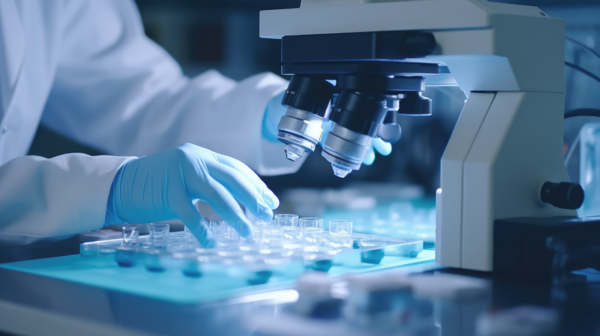Melbourne nano-biotech Nexsen (ASX:NXN) will debut on the ASX with its world-first biosensing platform that brings lab-grade diagnostics to the point of need.
The company’s first diagnostic target is Group B Streptococcus (GBS), a maternal infection linked to more than 150,000 stillbirths and newborn deaths each year and a contributor to a wider burden in which 1.9 million newborns die annually from preventable infections, many occurring during labour.
Nexsen’s GBS Rapid Sensor is designed to test women in labour, providing clinicians with actionable answers within minutes so they can intervene in real time.
Underpinning the platform is Nexsen’s proprietary combination of ultra-bright nanoparticles, high-affinity bioreceptors, and a modular lateral-flow architecture. The result is a handheld, portable device that aims to match laboratory performance while remaining fast, simple, and low-cost.
“Our mission is to make lab-quality diagnostics accessible wherever they’re needed, in hospitals, on farms, or at border checkpoints,” said Founder and Managing Director Mark Muzzin. “By combining scientific precision with real-world practicality, we intend to help prevent losses measured not only in dollars, but in lives.”
The same nanoscale materials and flow chemistry designed for GBS can be retuned to detect livestock and plant pathogens, opening sizable markets in agriculture and biosecurity. Programs are already underway for bovine mastitis, a condition that costs the global dairy industry an estimated US$32 billion annually, and for high-impact plant diseases such as Xylella and Huanglongbing, which threaten horticultural supply chains.
“One scientific foundation can power hundreds of applications,” said Professor Vipul Bansal, Nexsen’s Chief Innovation Officer and Director of RMIT University’s Sir Ian Potter NanoBioSensing Facility, where the platform was advanced.
Nexsen’s development has been backed by more than $10.9 million in government and institutional funding. Northern Health (Victoria) will host fourth-quarter 2025 clinical trials for the GBS Rapid Sensor, while global commercialisation is initially targeted across the US, Europe, and Asia.
